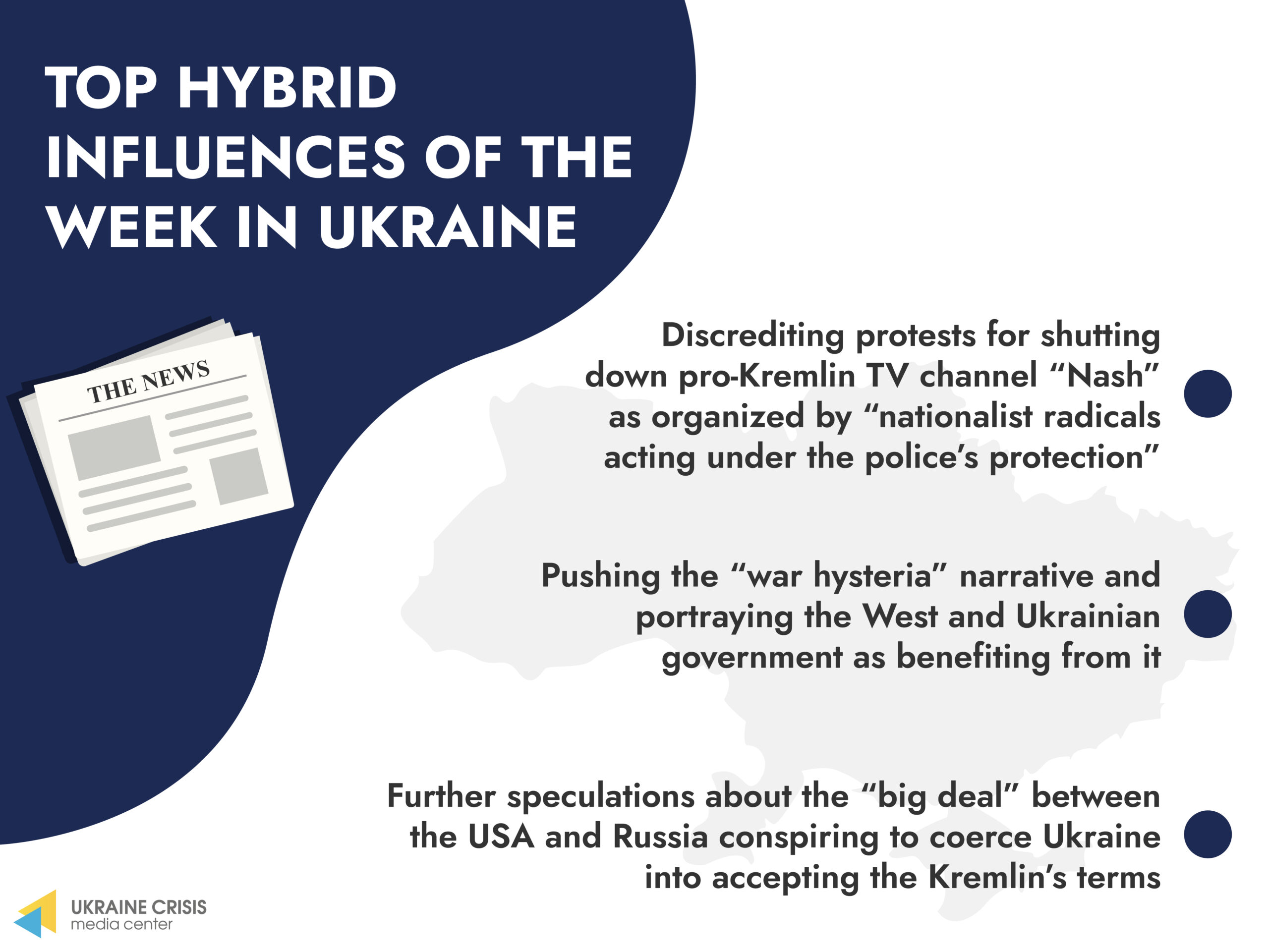
After the UK’s Foreign Office disclosed information about Y. Murayev, former MP and notorious agent of Kremlin influence, as a key candidate in Putin’s plans for installing a pro-Russian government in Ukraine, activists took to the streets for sanctions against Murayev and the TV channel “Nash” that he owns. The channel as well as other pro-Kremlin media and agents met this with a campaign to discredit the protests, reiterating the narrative about “nationalist radicals on the loose” and portraying the rallies as protected by the police. In attempts to denigrate the protests, propagandists traditionally painted them as violent and threatening the “freedom of speech” in Ukraine despite their peaceful nature.
As the reports of Russian continuous military buildup continue appearing, the pro-Kremlin forces keep pushing the narrative about their artificial nature. This week, the key message reiterated by various channels of Putin’s propaganda disseminated the message about “war hysteria” beneficial for two sides: the West and Ukrainian government. Denying the facts of Russian aggression and blaming the attacked for standing up to the attacker aim to shift the responsibility and sow discord in Ukraine from within and in its relations with the Western allies. Sadly, the Ukrainian President’s recent rhetoric about the Western forces “inciting panic” only aids such goals.
Another narrative that continues to be heavily pushed via Kremlin’s proxies is about the “big deal” between Russia and the US (or collective West) on coercing Ukraine to accept the Russian terms on the occupied territories of the Donetsk and Luhansk regions. Portraying Ukraine as unwilling to adhere to the Minsk agreements despite the West’s “orders” is aimed to again shift the blame for the escalation from Russia to Ukraine and justify Putin’s demands while sowing dismay in Ukrainian society.


